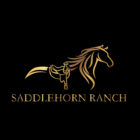Jon Bell, Contributing writer
Jun 13, 2014, 1:14pm PDT Updated: Jun 13, 2014, 1:37pm PDT
The foreclosure market is different now than it was when the company started, too. For starters, back then most of the homes they bought were occupied. Many required only light remodels before they could be put back on the market.
Nowadays, most of the homes Gorilla buys are long abandoned, neglected and often overrun with rats, bats or bees. One had been taken over by 30 cats.
“The homes are definitely more distressed now,” Helmick said. “There are not as many, but the ones that are out there are abandoned and they’ve been that way for a long time.”
Back when John Helmick and Ben Bazer first started buying distressed homes, they noticed something about the other folks who came to the auctions.
They attended inconsistently, toted old three-ring binders and carried advertisements they’d cut out of the newspaper.
Helmick and Bazer, however, showed up at every auction armed with laptops and spreadsheets, ready to jump on the best deals.
“I looked around and saw a bunch of monkeys and chimps, but no gorillas,” Helmick said, “so I said, we’re going to approach this like it’s a corporation, not like a club or a hobby.”
And that’s how Gorilla Capital, the Eugene real estate investment company, came to be.
It’s also how the company has plowed through the past eight years, growing from four employees and $3.6 million in revenue in 2006 to 35 employees and more than $70 million in sales last year. The company now operates in 14 states across the country.
Last year, Gorilla bought, remodeled and sold 400 houses. It’s aiming for 500 — and $90 million in sales — this year.
Helmick, Gorilla’s CEO, said the company takes a technological approach to find the best deals and analyze how much they’ll have to put into a house and how much they’ll get out.
Rather than focus on particular geographies, Gorilla hones in on the best opportunities, whether it’s an abandoned, rat-infested home in Idaho or a foreclosed McMansion in Arizona.
Expanding across the country has made it a little more challenging to keep up with all the moving parts in different time zones, but Helmick said Gorilla makes sure to find top-notch local operators for every project.
As a result, the remodels have become more extensive — and expensive. Five years ago, Helmick said the average cost of the remodel was about 12 percent of the home’s purchase price. That’s risen to 24 percent now.
In places like Arizona, it’s not uncommon for Gorilla to have to invest $60,000 to upwards of $100,000 into a remodel.
Helmick said he thinks that trend will continue for Gorilla. He also expects the company to stay on its growth track.
“I’m always interested in the future,” he said. “We have never had a plan to grow just to grow, but when we see an opportunity that we can’t turn down, we won’t turn it down.”
Read the article on the Portland Business Journal’s Website.


